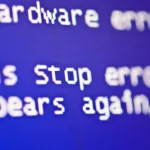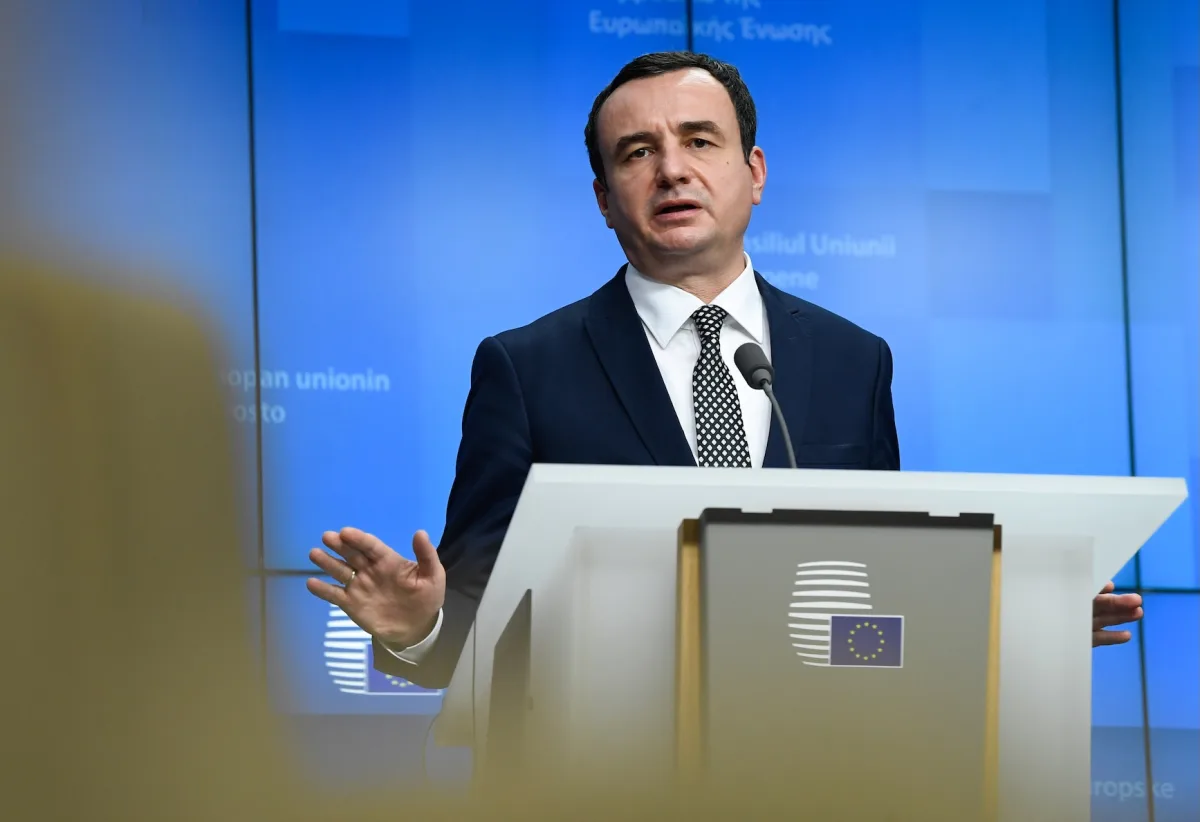What’s happening in Kosovo is not just a political deadlock; it’s a hijacking of the entire democratic process. More than four months after parliamentary elections, MPs have failed to inaugurate the new parliament some 38 times. Despite topping the polls, Prime Minister Albin Kurti’s Vetëvendosje party didn’t secure enough seats to unilaterally elect its choice for parliamentary speaker.
The opposition, in turn, has repeatedly blocked his nominee. Kurti (pictured above) refuses to compromise. The result? No functioning parliament, no progress, no accountability, no resumption of the dialogue with Serbia, no reforms, no comprehensive economic plans, and no foreign investments to help lift the country out of its financial doldrums.
Now the Constitutional Court has stepped in, giving MPs just 30 days to fulfill their fundamental constitutional obligation: elect a speaker and begin the legislative process. That this even needs to be ordered by the court is deeply alarming.
This is not how democracy functions. Institutional paralysis is driven by personal ego and party interest, which take precedence over national interest. The people of Kosovo deserve better than an endless political charade. This power struggle undermines Kosovo’s institutions, erodes public trust, and renders the government dangerously ineffective.
Several concrete steps must be taken to end Kosovo’s ongoing political deadlock, and Kurti and other political party leaders need to prioritise the country’s interests over partisan gain.
Key steps to end the deadlock
Since the Constitutional Court has already ordered that the Assembly must be constituted and a speaker elected within 30 days, this requires all parties, especially the largest, Vetëvendosje, to engage in genuine negotiations and be willing to compromise on the choice of Speaker.
Early parliamentary elections may be necessary if a consensus cannot be reached within the 30-day deadline. Indeed, the repeated failure to elect Vetëvendosje’s candidate has shown that insisting on a divisive nominee only prolongs the crisis. In that regard, the opposition parties’ call for an open vote and consensus, rejecting secret ballots as less transparent, should be embraced. Adopting transparent procedures could help build trust and break the impasse.
In addition, the leader of the Democratic League of Kosovo (LDK), which has proposed a national unity government led by a politically neutral figure, with party leaders excluding themselves from executive roles and ministries led by professionals from all parties, should be seriously considered and a new election date should be established. This transitional government would focus on restoring institutional functionality and implementing urgent reforms until new elections can be held.
Willingness to change candidates
Many analysts, including this writer, suggest that Vetëvendosje should propose a new, less polarising candidate for Speaker as a logical way out. It is time for Kurti to face a reality he defied to demonstrate that he is worthy of leading the largest party. Agreeing to do that would also demonstrate that he has the courage, self-confidence, and leadership qualities to improve his prospects of winning an outright majority in the next election.
Although Kurti has taken steps by inviting opposition leaders to talks, these must be substantive and aimed at real compromise, not just procedural posturing. He should be willing to withdraw or replace divisive candidates and support consensus-building measures, even if it means a temporary loss of influence for his party.
Additionally, now serving as merely a caretaker PM, Kurti’s powers are legally limited to essential and previously planned activities; he should avoid making controversial appointments or decisions that exceed this mandate. He must prioritise Kosovo’s stability, economic health, and international standing over his party’s partisan interests.
Opposition responsibilities
The opposition parties must participate constructively in talks and not use the crisis solely to weaken the transitional ruling party or force snap elections. They should seriously consider proposals for a unity or interim government and not insist on maximalist positions, perpetuating the stalemate. In that respect, all parties must recognise their shared responsibility for the crisis and the urgent need to restore functional institutions.
The deadlock is already harming Kosovo’s economy, risking the loss of international loans and EU funds, and undermining public trust in democracy.
Civil society, business groups, and global partners have all called for urgent action and accountability. That said, ending the paralysis requires political will, flexibility, and a willingness to compromise from all sides. Beyond the political squabbling, what is needed now is not sensationalism but serious discussion between the leaders of the parties to unravel the deadlock, and pay attention to the morbid dialogue between Kosovo and Serbia.
Serbia’s exploitation of Kosovo’s political deadlock
Other than acute internal paralysis, which is adversely impacting nearly every facet of Kosovo’s domestic agenda and its relations with the EU, Serbia is using Kosovo’s political deadlock to argue that Prishtina lacks a legitimate government, thereby stalling or weakening Kosovo’s position in EU-mediated dialogue and negotiations.
Serbian officials are emphasising the deteriorating situation for Serbs in Kosovo, blaming Pristina’s actions and using the impasse to push for more international attention and concessions. Additionally, the Serbian-backed Serb List party, which holds guaranteed seats in Kosovo’s parliament, is reportedly deepening the stalemate by boycotting votes, making it harder for Kosovo to form a government and furthering Belgrade’s interests.
Serbia further points to Kosovo’s political instability, arguing against Western support for Prishtina and resisting pressure for concessions in normalisation talks. Some analysts warn of possible provocations, albeit Serbia’s main focus remains diplomatic and political, as its own domestic situation is also tense, rather than direct violent escalation let alone waging a war, which US President Donald Trump falsely says he prevented.
To be sure, Serbia is primarily exploiting Kosovo’s deadlock to weaken its international standing and negotiating position, while reinforcing its own influence over Kosovo’s Serb minority and the dialogue process. This situation further reinforces the need for the EU and the US to resume negotiations between Kosovo and Serbia, because further stalling of the talks only makes the prospect of reaching a sustainable and peaceful resolution ever more remote.
Kurti and other party leaders should consider all the above seriously and act decisively. Kurti, along with the other political party leaders, must set aside narrow interests and focus on restoring Kosovo’s democratic institutions for the good of all citizens. This is the hallmark of statesmanship, which has been sorely lacking.
The question is, will Kurti rise to the occasion or let the country down at a political price he’d rather not pay?
Photo: European Union.







